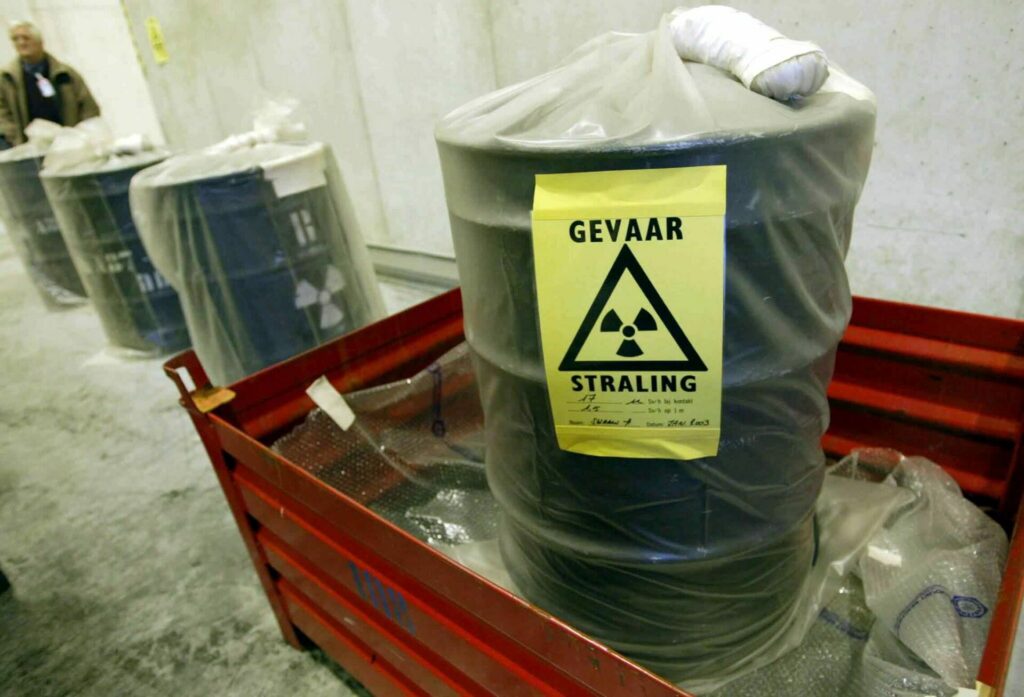The new surface repository for radioactive waste in the Antwerp municipality of Dessel has been granted a new facility and operating licence after the Federal Agency for Nuclear Control (FANC) gave the green light following years of discussions.
The waste was temporarily kept at Belgoprocess in Dessel but is now being stored permanently in a new facility built by NIRAS, which manages all radioactive waste in Belgium.
"With this permit, we can guarantee the long-term safety of the repository, so future generations can manage the radioactive waste in the best possible way," Director General of the FANC, Frank Hardeman, told De Standaard.
The permit concerns concrete containers that are placed in larger concrete modules, with the total space coming to 150,000 m³ including packaging. Over the next few decades, they will be filled and eventually covered with soil, creating two mounds.
High-level vs low-level waste
The facility will not store high-level waste such as spent fuel rods, which will remain radioactive for hundreds of thousands of years – and for which deep disposal would require clay layers 400 metres underground.
The low-level waste that will be stored includes used contaminated clothing, fibres, filters and medical waste (which will remain radioactive for several hundred years). The low-level radioactive waste emitted during the decommissioning of nuclear power plants will also be stored there.
The cost of the facility is calculated at €2.6 billion, money that comes partly from the reserves that Engie Electrabel is in the process of accumulating for decommissioning the Belgian nuclear power plants and for waste disposal.
Related News
- 'Involve the people': Belgian citizens to debate disposal of radioactive waste
- 'Humanity is playing with fire' says UN chief concerned with nuclear safety
Still, this is only a preliminary to the large costs needed for the deep disposal of the highly radioactive nuclear waste. Discussions about costs are still ongoing and the King Baudouin Foundation was commissioned to engage people on the subject and encourage investment this year.
In 2021, the cost of arranging the dismantling and disposal of nuclear waste was estimated at €18 billion. However, costs are expected to reach €41 billion over the several decades that the project will take.
Meanwhile, Engie Electrabel is asking for a cap on the reserves it must set aside for nuclear waste, but discussions with the Federal Government have been going on for much longer than anticipated, with no immediate end in sight.

